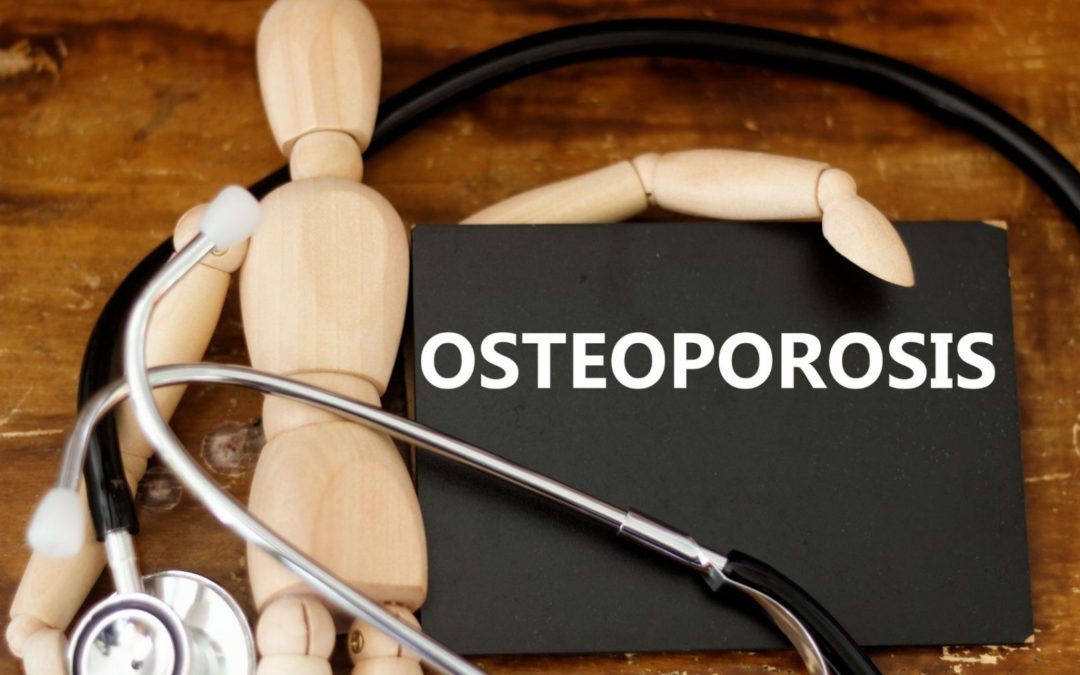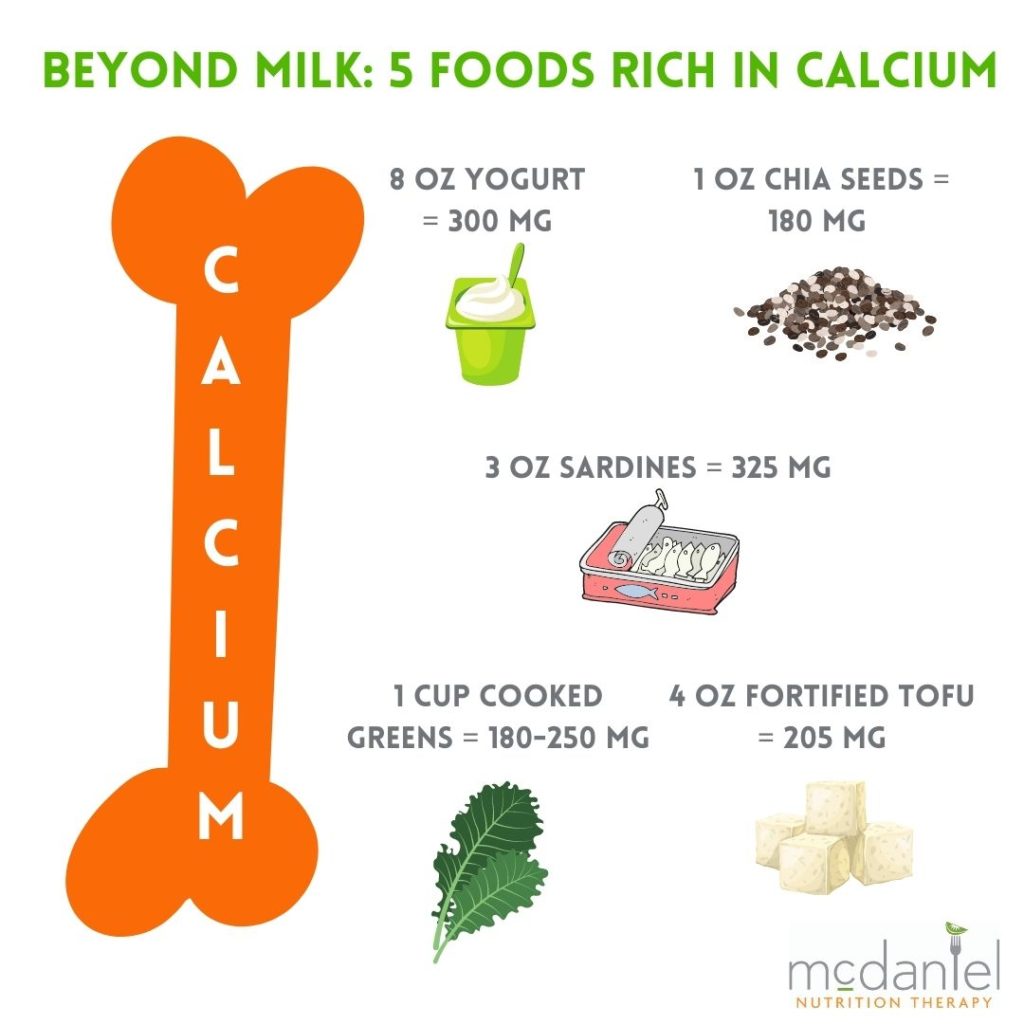Often times people believe that osteoporosis is a problem that affects older women alone. Although women are 4 times more likely to develop osteoporosis, in 2020 the number of men in the United States with thinning bones topped 20 million. Clearly, osteoporosis impacts both genders with equality.
A study conducted by the University of Arkansas on college-aged women found that 2% of women have osteoporosis and 15% have low levels of bone density and are at a higher risk for developing osteoporosis. This shows that osteoporosis can strike anyone at any age and early awareness is crucial.
What Is Osteoporosis?
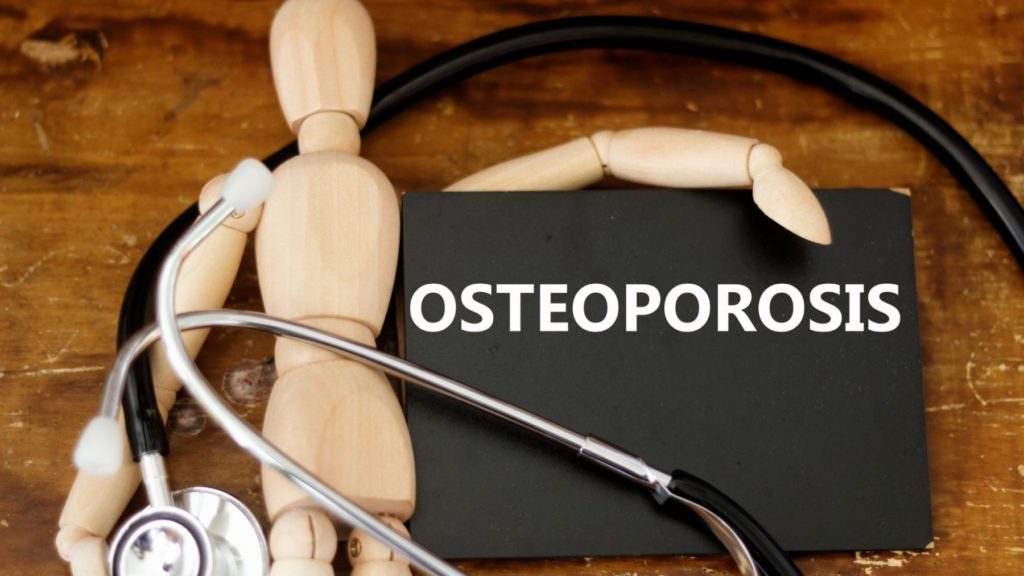
Osteoporosis, also known as the “silent disease,” is a disease that weakens the bones. Osteoporosis literally translates to ‘porous bone. Our bone mass peaks around the age of 30. After age 35, bone breakdown occurs faster than bone buildup. After menopause, the rate of bone breakdown occurs even faster. Our bones lose minerals like calcium and phosphorous which makes them fragile, increasing the risk of fracture.
Who Is at Risk For Osteoporosis?
- Age older than 65
- Broken bone after age 50
- Family history
- Smoking
- Low body weight
- Menopause before age 45
- Low dietary intake of calcium
- Low dietary intake of vitamin D
- More than 2 alcoholic drinks, several times a week
- A sedentary lifestyle
- Medications: steroids, thyroid medication, cancer treatment
- Medical conditions: hyperthyroidism, rheumatoid arthritis, inflammatory bowel disease
The good news is that osteoporosis is preventable in most cases. A healthy diet and lifestyle can greatly impact bone health for BOTH men and women. It is never too late to start working on your bone health!
5 Simple Steps For Better Bone Health
Get Your Daily Dose of Calcium
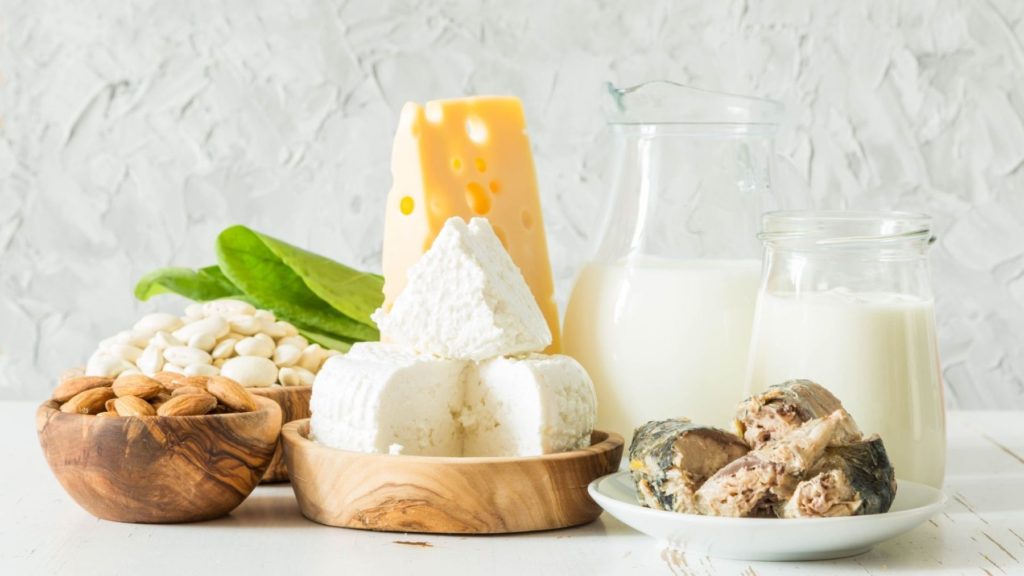
Calcium is an essential mineral for bone building and maintenance. Our bones and teeth are home to 99% of our total body calcium. Calcium requirements vary by age and stage of life. For example, calcium needs may be higher during pregnancy/lactation or after menopause. The recommended amount of calcium for adults age 19-50 is about 1,000 mg per day. If you are older than 50 years old, then your calcium needs are a bit higher (1,200 mg a day) to account for the calcium lost. Studies have shown that an adequate consumption of calcium throughout the lifespan can minimize age-related bone loss and protect your bone health!
Timing is everything! Your body can best handle about 500 mg of calcium at one time from food and/or supplements. Moreover, it’s important to spread calcium sources throughout the day instead of consuming them all at one time.
Food high in calcium include dairy products, vegetables like spinach and broccoli, fruits like calcium-fortified orange juice, grains, meats, nuts, and beans.
Check out our latest Instagram post for more!
Get Enough Vitamin D
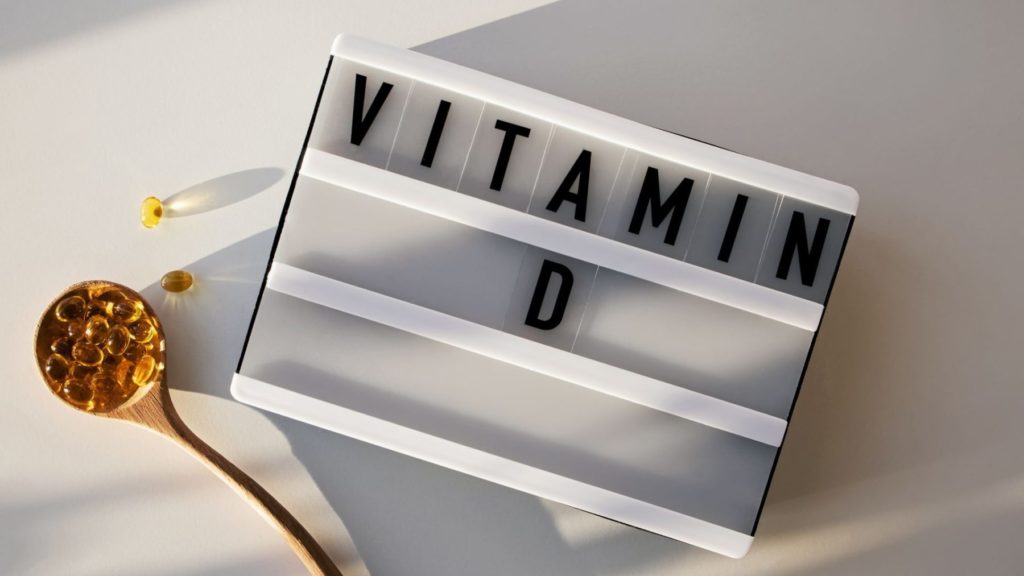
Vitamin D is calcium’s parter in crime when it comes to bone health. Vitamin D is like a key that unlocks the door and lets calcium into the body. It is a vitamin linked to immunity and cell growth, and it helps protect from heart disease, diabetes, and cancer.
Vitamin D is also manufactured in your skin following direct exposure to the sun. As little as 10-15 minutes of sunlight exposure a day 2-3 times a week can provide you with enough vitamin D for your body! Clothing used, sunscreen, window glass, and pollution can all reduce the amount of vitamin D produced by the body.
Some foods high in vitamin D include oily fish (salmon, tuna), fortified milk, soy milk, cereals, fortified orange juice, yogurts, and breads. It’s not easy to meet vitamin D through foods, and for many, supplementation should be considered. As you age, you need more vitamin D to support your bone health and other metabolic processes. In summary, get your vitamin D levels checked!
Avoid or Drink Alcohol in Moderation

Heavy drinking (more than 2 drinks per day) is linked to weaker bones and an increase risk of falls. Drink recommendations include 1 drink a day for women and up to 2 drinks a day for men, if you are a frequent drinker. If drinking alcohol is not something you practice, we don’t recommend picking up the habit when it comes to bone health.
Strengthen Bones With Exercise

Exercising stimulates our bone growth and contributes to our overall bone health. Putting physical stress on your bones — by lifting weights or biking or running — stimulates osteoblasts (bone building cells). Exercise also increases blood flow and delivers more oxygen to the tissues, including muscle and bone. Blood flow in bones is an important part of, bringing nutrients to bone and also, helping the cells that are making new bone.
Here are ways different exercises support and strengthen your bones:
- Weight-bearing exercise (walking, jogging) helps support the skeleton
- Strength-training helps build muscle, and in turn supports the skeleton
- Balance training helps prevent falls
Focus on Overall Healthy Eating
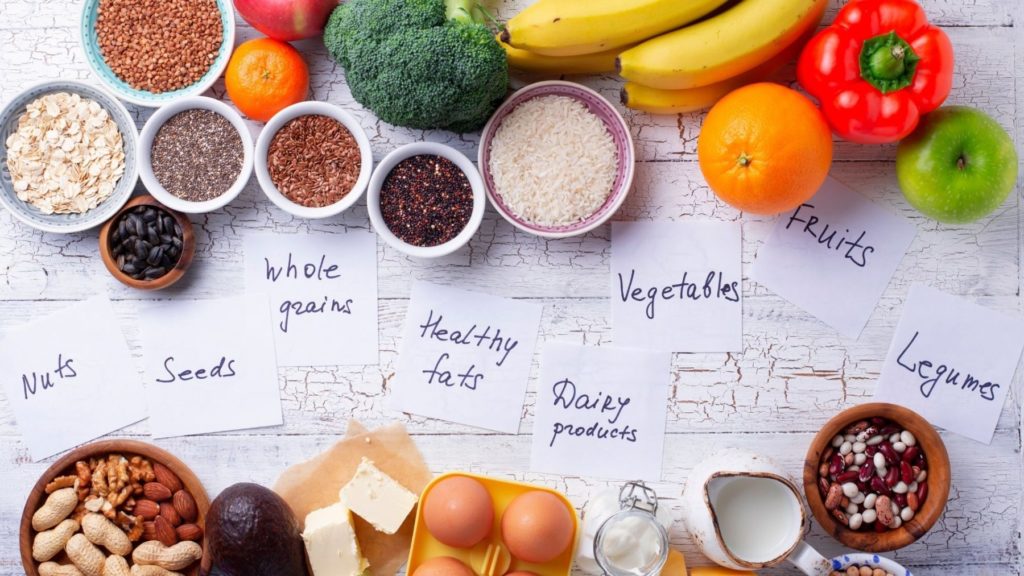
We can’t talk about healthy bones without talking about a healthy diet. The key to building and maintaining healthy bones is in how everything works together, instead of focusing on individual nutrients.
- Put down the salt shaker. High sodium intake is linked to other diseases, such as heart failure and hypertension.
- Moderate protein intake is best. Low protein levels increase the risk of fractures and high levels of protein increase bone loss.
- Include a variety of fruits and vegetables in your diet. Fruits and veggies are bone-protective as well as provide antioxidants to fight inflammation.
- Don’t overdose on fiber. Excessive fiber intake can interfere with calcium absorption. Fiber naturally present in foods should not be a problem for bone health and is actually beneficial to your overall health.
How Do I Know If I Need a Supplement?
Supplements should be used to supplement the diet but not replace key nutrients. Individuals who may need to supplement include:
- post-menopausal women
- amenorrheic women
- adolescents during growth spurts
- lactose-intolerance or milk allergy
- vegetarians / vegans
- pregnant / lactating women
However, if you do not fall in one of these categories, food will always be your best bet! High calcium and vitamin D foods contain other key nutrients which are important for bone health and an overall healthy diet.
Do you have any questions on bone health? Schedule your one-on-one appointment with one of our dietitians today!

